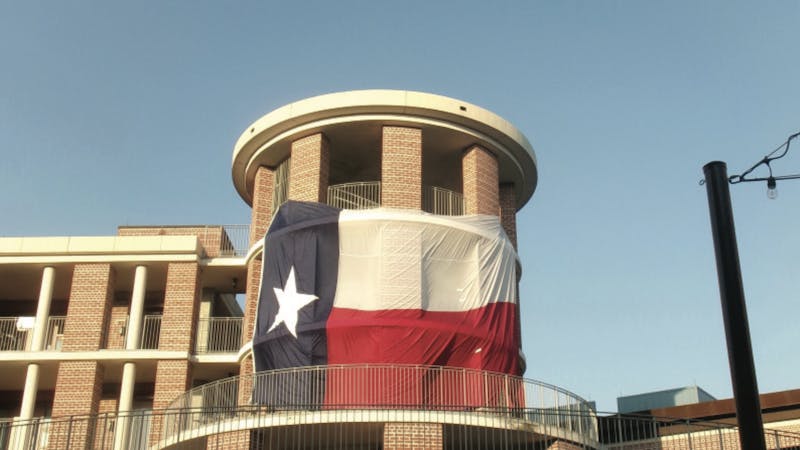Saudi Arabian Oil Co. joins Rice Carbon Hub research initiative

Apple Li / Thresher
The Saudi Arabian Oil Company, also known as Aramco, recently joined Rice University’s Carbon Hub research initiative, a program that focuses on the development of sustainable uses of hydrocarbons to further the energy transition.
First launched in 2019, the program supports a zero-emission future in which hydrogen energy and advanced carbon materials are produced together from hydrocarbons in a sustainable and efficient manner. Aramco has joined this initiative with a five-year sponsorship commitment and brings $10 million worth of funding for it.
Carbon Hub Director Matteo Pasquali said that there are various benefits of having Aramco join the program.
“These are initiatives where we’re trying to get academia and industry to work together and also have government help and support,” Pasquali, a material scientist and chemical engineer, said. “And so it’s important to have as many companies involved as possible so that whatever we can do on the academic side, to spur the growth of this field, gets translated and has an impact quickly, and vice versa; we also get feedback into academia from industry on [things like] what the bottlenecks [are], what needs to be worked on, and [how] to get this field to grow faster.”
According to a Rice News article, the products of the Carbon Hub research initiative have applications in food, mobility, textile and construction industries, among many others. Using these technologies reduces carbon dioxide production, assisting in the decarbonization of the industrial sector as a whole, expanding manufacturing jobs, and promoting economic growth. Subsequently, the program provides funding for a variety of academic research sectors, including policy, engineering and basic science research.
The article reports that Aramco’s initiatives on nonmetallic materials and hydrogen align with the primary focuses of Carbon Hub’s research. Along with its Saudi Basic Industries Corporation partner, Aramco and Carbon Hub members hope to replace emission-intensive materials in industry sectors, including steel, concrete, and soil enhancers, to name a few.
Pasquali said that they could produce an inexpensive, synthetic grade of carbon, which may potentially replace more expensive materials like biochar.
“[Biochar is] fine for gardening, or small plots of land. But, it’s not fine for very large-scale use- especially, as you go to regions with lower economic development and perhaps marginal soil in terms of agriculture,” Pasquali said. “So if we took our grades of carbon that are significantly cheaper than what we can make now and have similar characteristics to biochar, we could reduce the use of fertilizers.”
More from The Rice Thresher
Rice lands high on Niche, Forbes college ranking lists
Rice recently ranked No. 10 on Niche’s Best Colleges in America list and No. 12 on Forbes’ annual America’s Top Colleges list in 2026. It was also recognized in several categories by the Princeton Review, placing in the top 10 in four categories.
From post-human novels to augmented reality, Rice hires new faculty
Rice welcomed 97 new professors this fall across disciplines, including a posthumanist Harvard scholar, a husband-wife duo and a computer science professor who graduated from Rice thrice.

First public of the year reckons with threats of a dry campus
After a Dis-O that saw four times as many calls for intoxication-related transports of students to the hospital compared to the prior three years, Cory Voskanian, a Martel College socials head tasked with planning the first public of the year, said that he was feeling the pressure.


Please note All comments are eligible for publication by The Rice Thresher.